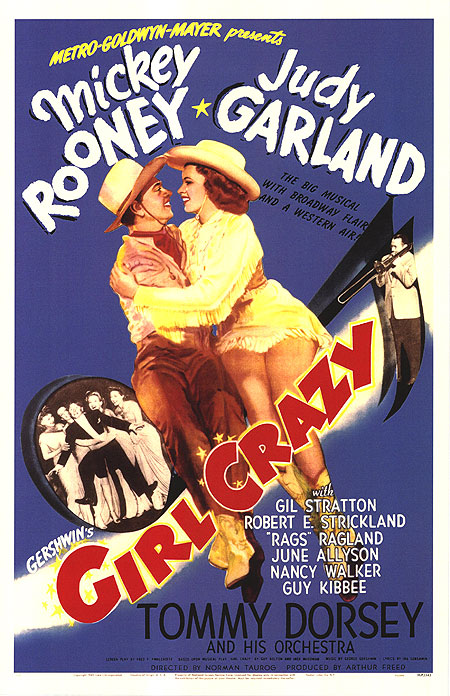Judy by the Numbers: "You're So Right For Me"
 Wednesday, September 21, 2016 at 9:32AM
Wednesday, September 21, 2016 at 9:32AM Anne Marie has been chronicling Judy Garland's career chronologically through musical numbers...
The Show: The Judy Garland Show Episode #1
The Songwriter: Mel Torme (uncredited)
The Cast: Judy Garland, Mickey Rooney, Jerry Van Dyke
The Story: A musical variety show seemed to be the perfect format for Judy: it was a popular genre that took advantage of its star's talents in not only singing, but also dancing and sketch comedy. Just two problems: 1) by 1964 the variety show was considered "old hat" and 2) CBS decided to air this new/old variety show against Sunday night behomoth Bonanza.
With the pressures of broadcast television, a new creative team (including Mel Torme), and her disintegrating relationship with Sidney Luft, Judy Garland requested that her first guest be someone she could trust: Mickey Rooney. The company line was that she was doing an old pal a favor, though it's clear from watching the clip that he's doing her a favor as well. Judy begins the clip full of nervous energy - she even mouths some of Mickey's lyrics - but eventually two decades of partnership and four decades of friendship put her at ease. By the time they get to the reprise, Judy Garland is genuinely, truly having a good time just being herself. The question was whether Judy Garland herself was something TV audiences would tune in for.






